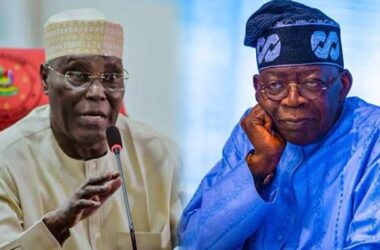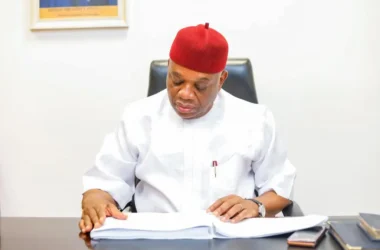The National Human Rights Commission (NHRC) has released a grim report showing a rise in human rights abuses across Nigeria, with 1,712 kidnappings and 1,463 killings documented between January and September 2024.
The report, presented during a human rights consultation event in Abuja, underscores the challenges facing Nigeria’s vulnerable populations and the urgent need for reforms.
The consultation, organized by the NHRC in partnership with the European Union, also marked the launch of the Human Rights Defenders Forum, an initiative aimed at reinforcing support for human rights advocates across the nation.
During his presentation, NHRC’s human rights adviser, Hillary Ogbonna, provided detailed data revealing the frequency and intensity of violent crimes over the year. According to Ogbonna, the first three months of 2024 alone showed alarming numbers.
January recorded 150 kidnappings and 55 killings, while February saw 215 kidnappings, 106 killings, and 550 instances of child abandonment. In March, the rates rose further, with 499 kidnappings and 172 killings reported, along with 323 cases of child abandonment.
These numbers, Ogbonna suggested, represent a troubling trend that highlights both the rise in violent crimes and the worsening state of human rights in Nigeria.
Ogbonna noted that various socioeconomic issues have fueled this surge in human rights violations, particularly in communities where economic hardship has pushed individuals to take desperate measures. He cited June as a peak month for kidnappings and killings, attributing part of this rise to economic difficulties affecting citizens across the country.
In June alone, there were 240 killings and 138 kidnappings, marking a particularly violent period. These violent occurrences, Ogbonna warned, are a direct reflection of the economic pressures and insecurity faced by many Nigerians, which often lead to unrest and crime in affected communities.
Throughout the year, child abandonment cases also spiked, with thousands of incidents documented. July recorded a particularly high number of child abandonment cases at 3,300.
Ogbonna explained that these abandoned children are increasingly becoming targets for recruitment by terrorist and Islamist groups active in some regions, particularly in the northern areas of the country.
In September, this crisis persisted, with 2,723 child abandonment cases, showing the strain on social systems and the vulnerabilities that children in particular are facing amid the instability.
Executive Secretary of the NHRC, Dr. Tony Ojukwu, took the opportunity to address the broader challenges in the human rights landscape of Nigeria, describing it as both “complex and evolving.”
Ojukwu pointed out that while there have been some advances in the protection of human rights, the country still faces significant obstacles. He expressed concern about the restrictions placed on civil society groups and individuals who speak out on sensitive issues, noting that “In recent years, we have witnessed alarming trends, including restrictions on the rights of individuals and organizations to operate freely.”
In his remarks, Ojukwu also highlighted three pivotal events that have shaped recent human rights discourse in Nigeria: the End Bad Governance protests in August, the arraignment of minors in Abuja, and the release of the report by the Special Independent Investigative Panel on Human Rights Violations in Counter-Insurgency Operations in the North East.
According to Ojukwu, these events not only highlight ongoing human rights challenges but also provide points for future discussions and actions aimed at reinforcing the rights of Nigerians.
Zissimos Vergos, Deputy Head of Delegation for the European Union in Nigeria, also spoke at the event, stressing the importance of integrating human rights principles into the country’s development goals. Vergos observed that, while progress has been made, Nigeria’s human rights journey remains a continuous effort.
“Democracy and human rights should be the cornerstones upon which we build collective peace, social justice, and prosperity,” he said, calling on all stakeholders to remain committed to protecting these values.










